What Are HIPAA Privacy Rules & Regulations?
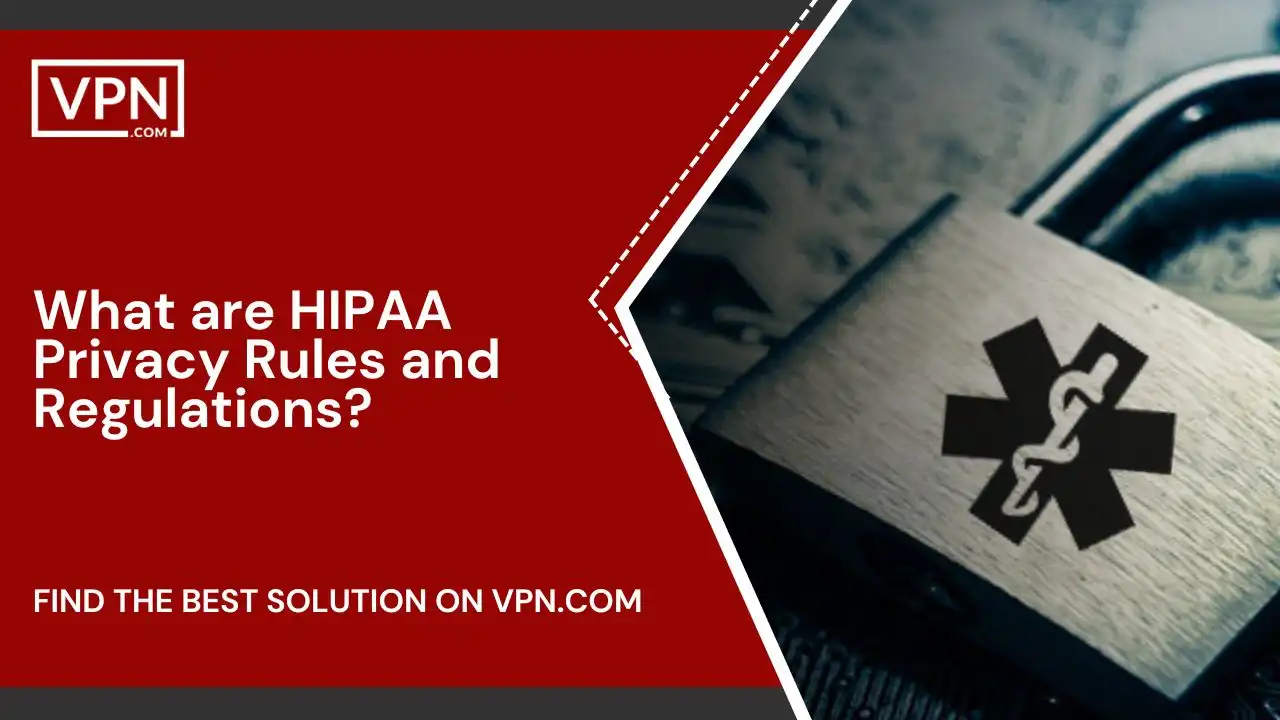
The Health Insurance Portability and Accountability Act (HIPAA), enacted by the U.S. Congress in 1996, aims to protect sensitive patient health information through privacy and security provisions. These regulations apply to healthcare providers, insurers, and business associates needing access to medical records and data.
This article explores what HIPAA entails, from its history and critical privacy rules to compliance requirements, enforcement, and best practices for covered entities. We’ll clarify common HIPAA myths and address emerging challenges as digital health advances. We aim to explain HIPAA’s role in preserving healthcare privacy while allowing requisite data access.
What is HIPAA?
HIPAA is the Health Insurance Portability and Accountability Act passed into law in 1996. Its core objective is guarding the privacy and security of individually identifiable health data such as medical histories, conditions, medications, and other protected health information (PHI).
HIPAA establishes standards healthcare entities must legally follow while allowing necessary access for treatment, payment, and standard operations. So, the regulations aim to balance safeguarding privacy without obstructing quality care coordination.

Get Started w/ NordVPN Today
- Top-rated VPN for OS unknown
- Ultra-fast speed in US in 2024
- Save 69% off with VPN.com Discount
- Plans starting at $2.99/month
- Rated 4.5/5 on Google Play with over 825,000 reviews
- Rated 4.7/5 on Apple App Store from 6,600 users
The Need for Healthcare Privacy Regulations
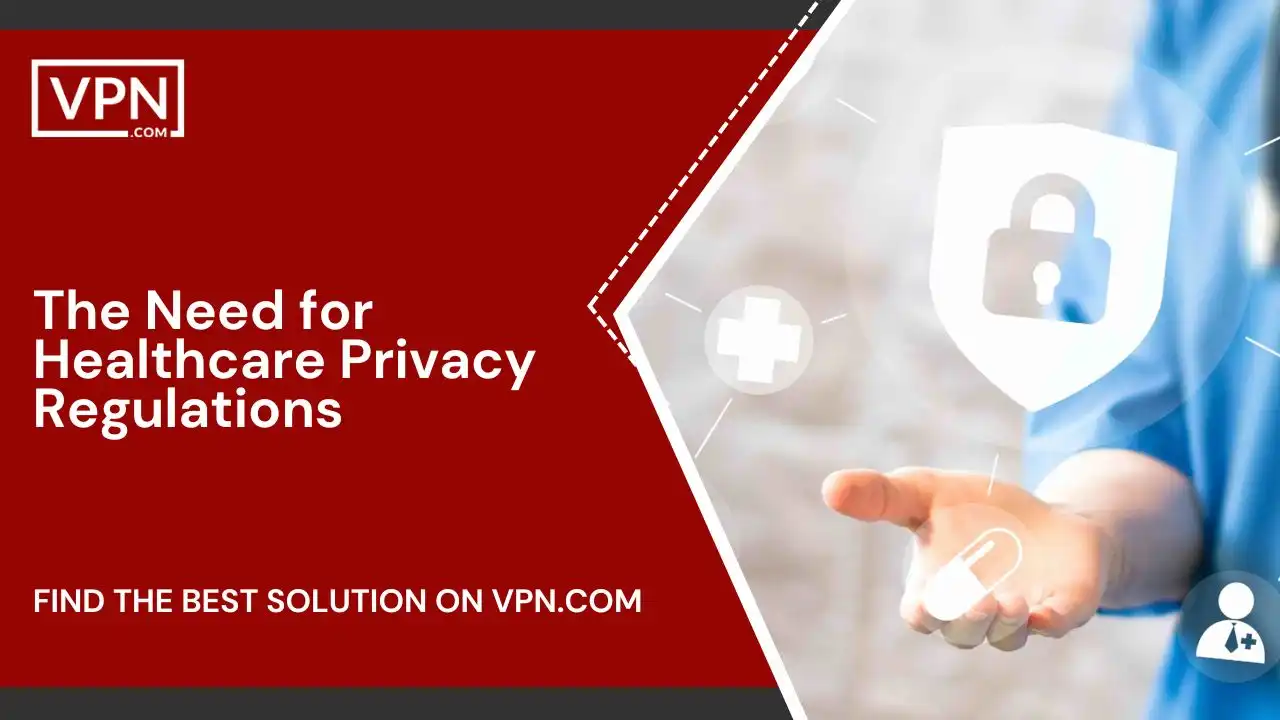
Technology facilitates the creation, analysis, and sharing of medical records electronically. But digitization also leaves health data more vulnerable to privacy breaches from hacking unless adequately secured. This raises serious ethical and legal concerns that HIPAA aims to address.
For instance, medical identity theft through illicit PHI access can have devastating financial and health consequences for patients. Healthcare providers thus carry an ethical duty to prevent unauthorized PHI disclosures that betray patient trust or cause harm. HIPAA provides regulatory authority, ensuring entities handle sensitive health data responsibly.
A Brief History Behind HIPAA Privacy Rules
The Health Insurance Portability and Accountability Act first passed Congress in 1996, with privacy rules finalized in the early 2000s following extensive consultations addressing concerns. Initially focused narrowly on data portability for insurance continuity, HIPAA’s scope expanded, embracing comprehensive privacy and security considerations safeguarding records against misuse.
Over the years, as technology and data use evolve, the Department of Health and Human Services (HHS) periodically updates HIPAA requirements through new statutes targeting emerging challenges. For instance, recent provisions now cover business associates and cloud service providers exposed to patient health information requiring protection, too.
What is the Purpose Behind the HIPAA Privacy Rule?
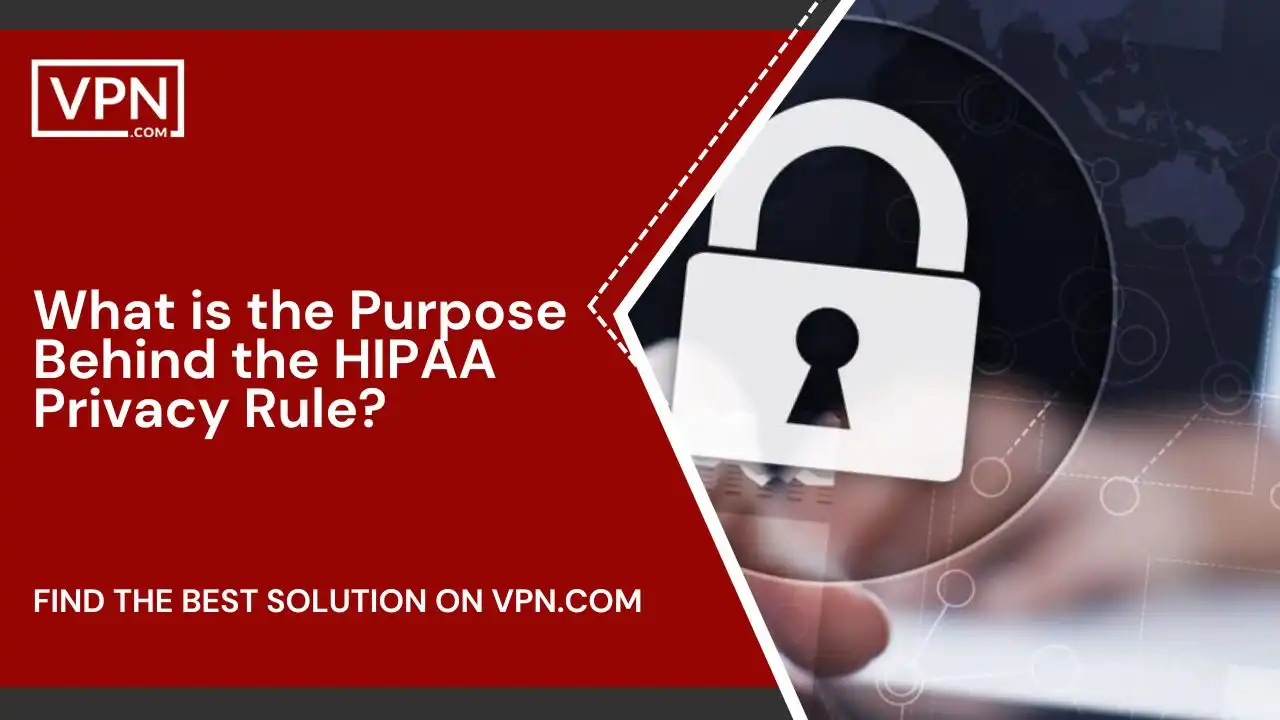
The core purpose behind the HIPAA Privacy Rule is to protect individuals’ medical records and other personal health information. More specifically, it aims to ensure that health data remains properly safeguarded while allowing necessary access and uses for quality treatment and care coordination.
At a high level, the objectives behind the Privacy Rule include:
- Preserving Patient Privacy – The Rule establishes safeguards limiting the uses and disclosures of protected health information to only legitimate and permitted purposes such as treatment, payment, and healthcare operations. Unauthorized access or sharing for other reasons is restricted.
- Granting Patient Rights – Patients are provided rights to access their records, restrict certain disclosures, amend incorrect information, and receive communications confidentially.
- Balancing Access Needs – While reinforcing information privacy and security, HIPAA seeks to avoid obstructing timely record availability for diagnosing medical conditions, determining treatment alternatives, and securing payment reimbursements.
- Building Trust and Accountability – By legislating standards and penalties around health information handling, HIPAA fosters trusted relationships between patients and healthcare entities where private medical details remain guarded from exploitation.
Key Components Covered Under HIPAA Privacy Rules

HIPAA Regulations Essentials
Protected Health Information (PHI) Covered includes identifiable medical data related to conditions, histories, medications, and other demographic indicators about particular patients. De-identified aggregate data without such ties lies outside HIPAA rules.
Permitted PHI Uses and Disclosures – The law allows sharing PHI without additional patient consent for coordinating treatment, securing payment, and healthcare operations like quality assessments. Other disclosures require authorization.
Patient Rights – HIPAA grants rights to individuals to access their records, restricting shares to insurers if paid out-of-pocket and correcting erroneous data. Signed consent is needed for PHI uses beyond core coordination.
Determining Covered Entities and Associates for Compliance
There are two main categories of entities that must comply with HIPAA’s Privacy Rule:
Covered Entities
- Healthcare providers like doctors, clinics, and pharmacies that transmit health information electronically in connection with transactions covered by HIPAA.
- Healthcare clearinghouses process nonstandard health data from providers into standard formats like billing services.
- Health plans such as insurance companies offer medical coverage.
Business Associates
Business associates are persons or organizations not part of covered entities that require access to patient health data to provide services or functions on behalf of covered entities. Examples include IT companies providing administrative software, medical device servicing firms, transcription services, and third-party administrators processing claims.
The Privacy Rule established national standards for protecting individually identifiable health information held or transmitted by covered entities and business associates.
If you or your organization handles or discloses protected health data, compliance requirements apply even if interactions seem minimal. Examining data access relevancy to conduct healthcare operations, payments, or treatment can clarify Responsibilities.
Ensuring Ongoing HIPAA Conformance
Maintaining continuous compliance involves:
- Conducting initial gap analyses addressing vulnerabilities
- Documenting formal privacy policies and procedures
- Implementing data safeguards administratively, physically, and electronically
- Facilitating staff training regularly about protocols
- Performing periodic audits and risk assessments and addressing identified issues
Keeping current with evolving HIPAA statutes through HHS web guidance helps stay caught up with updated provisions.
Why HIPAA Compliance Training Matters
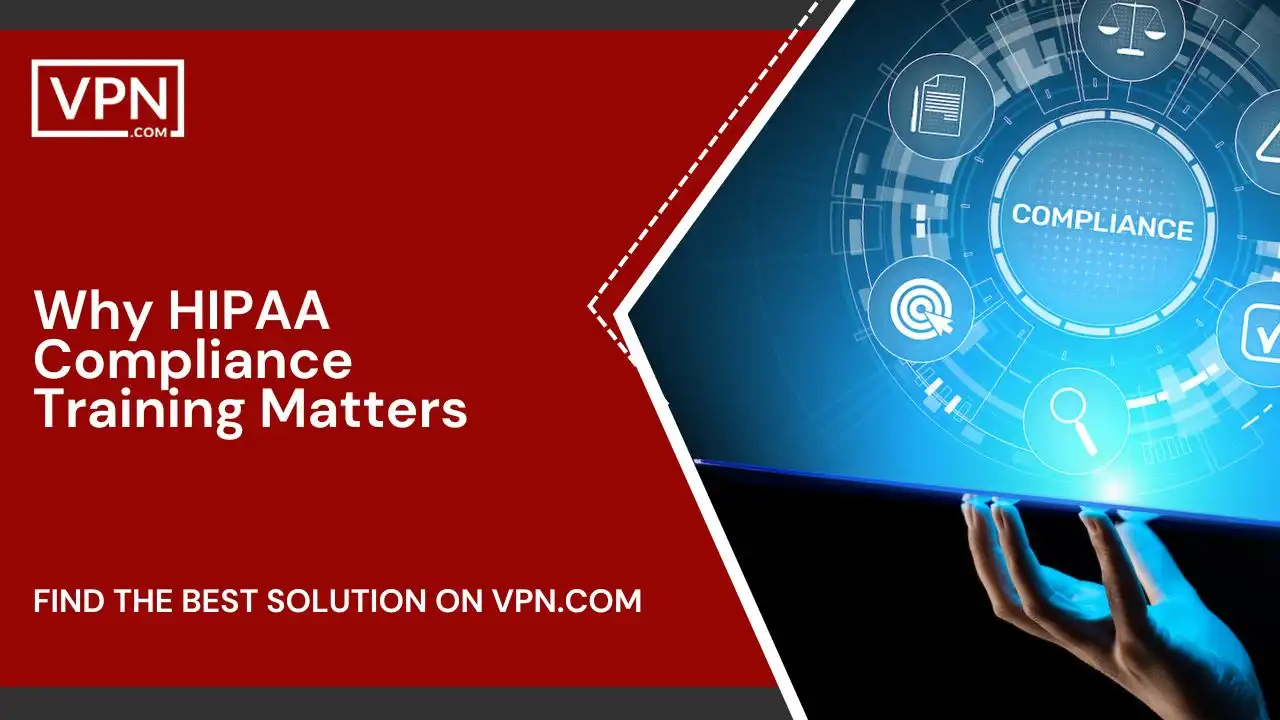
Ongoing staff training ensures personnel follow policies like disclosing only minimum health details necessary despite having access to broader records, verifying identities before sharing PHI, and securely transferring files. Training also covers recognizing social engineering attempts or reporting unauthorized data accesses.
Annual refresher training updates workers on revised regulations or new breach risks from evolving cyber threats. Fostering a culture valuing vigilance and accountability around healthcare data handling maintains robust HIPAA conformance.

Get Started w/ NordVPN Today
- Top-rated VPN for OS unknown
- Ultra-fast speed in US in 2024
- Save 69% off with VPN.com Discount
- Plans starting at $2.99/month
- Rated 4.5/5 on Google Play with over 825,000 reviews
- Rated 4.7/5 on Apple App Store from 6,600 users
Exploring the Latest and Future Shifts in HIPAA
The Health Information Technology for Economic and Clinical Health (HITECH) Act of 2009 supplemented HIPAA by addressing additional considerations like:
- Establishing data breach notification procedures
- Increasing civil penalties for non-compliance rising with willful neglect severity
- Granting patients the right to request electronic record copies
- Expanding business associates’ compliance duties
Future proposed rules may address data de-identification standards as technology facilitates re-identification and steps preventing disclosures incidental from permitted notices like appointment reminders.
Overcoming Challenges in Healthcare Privacy Management
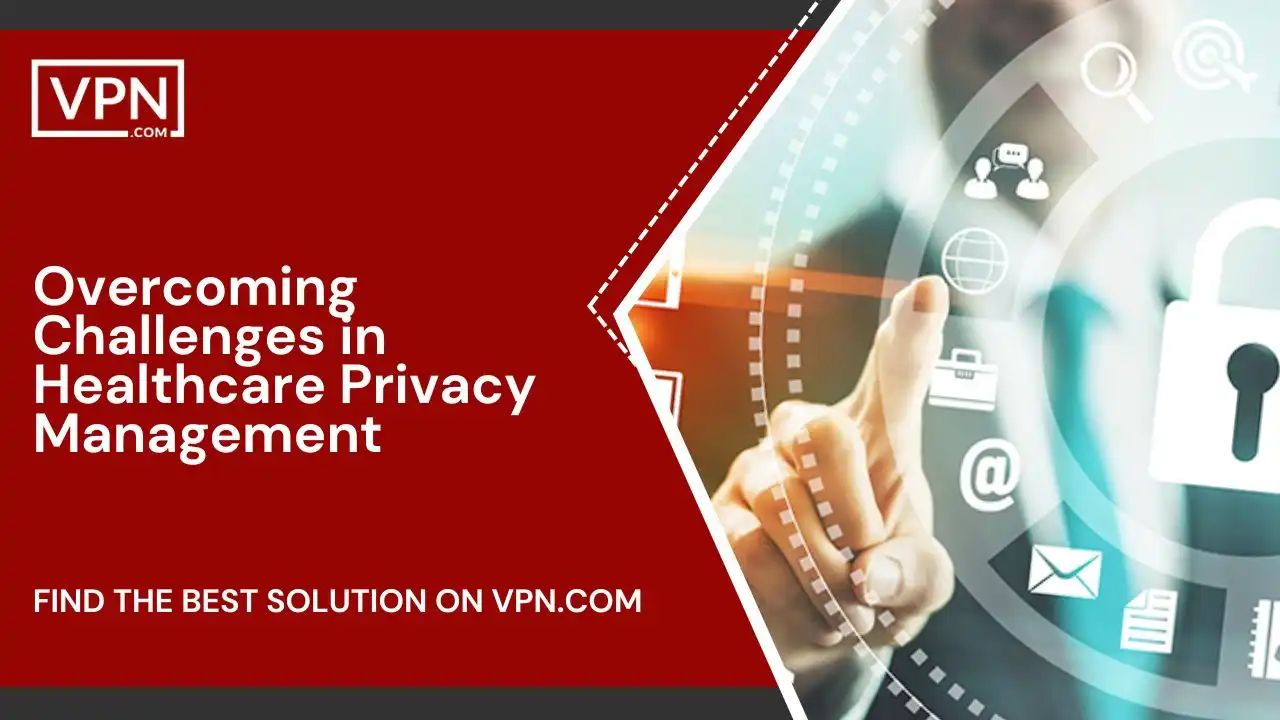
As innovative technologies enter healthcare, promising better-coordinated insights and improving outcomes, the HIPAA Privacy Rule must balance advancing care without sacrificing patient rights.
Artificial intelligence (AI) mining aggregated population health data risks re-identifying individuals indirectly through combining complex datasets. So, regulations like the HIPAA Privacy Rule tackle challenges arising from well-intentioned yet privacy-compromising data usage.
Simultaneously, giving patients granular record access controls under the HIPAA Privacy Rule becomes infeasible at scale. So, HIPAA seeks to balance privacy without preventable yet necessary care coordination for quality.
Ongoing collaboration addressing challenges under the HIPAA Privacy Rule helps overcome obstacles upholding patients’ rights while preventing compromised privacy that erodes trust in healthcare.
Best Practices for Maintaining HIPAA Conformity
Recommended measures for safeguarding PHI include:
- Assigning HIPAA compliance officers to establish controls
- Conducting risk analyses addressing identified vulnerabilities
- Developing data security disaster recovery procedures
- Testing contingency incident response plans through simulations
- Deploying data loss prevention and antivirus software
- Monitoring systems with intrusion detection and audit logs
- Ensuring business associate agreements (BAAs) protect PHI transfers
- Providing right-sized access controls authorizing only necessary PHI
- Maintaining updated secure backups of health records
What is the role of the government in HIPAA enforcement?
The federal Department of Health and Human Services’ Office for Civil Rights (OCR) enforces HIPAA regulations, including the HIPAA Privacy Rule. OCR conducts periodic audits evaluating compliance with the HIPAA Privacy Rule while also investigating complaints containing sufficient details suggesting potential HIPAA violations.
Breaches affecting over 500 individuals additionally trigger mandatory reporting to the Secretary of HHS and media outlets under the HIPAA Privacy Rule, drawing further scrutiny around notification and mitigation taken.
Upon discovering noncompliance with the HIPAA Privacy Rule, OCR prefers voluntary corrective action, settling violations before pursuing civil monetary penalties of up to several million dollars annually depending on violation severity, especially for willful neglect, exposing data knowingly without addressing gaps.
Egregious repeat offenses also risk criminal charges via the Department of Justice. Stiff sanctions incentivize ongoing active conformance with the HIPAA Privacy Rule for covered healthcare entities and business associates seeking to avoid significant damages both financially, legally, and reputationally from lax security or privacy policies failing to safeguard protected health information adequately as Congress intended statutorily.
Clarifying Common HIPAA Myths and Misconceptions
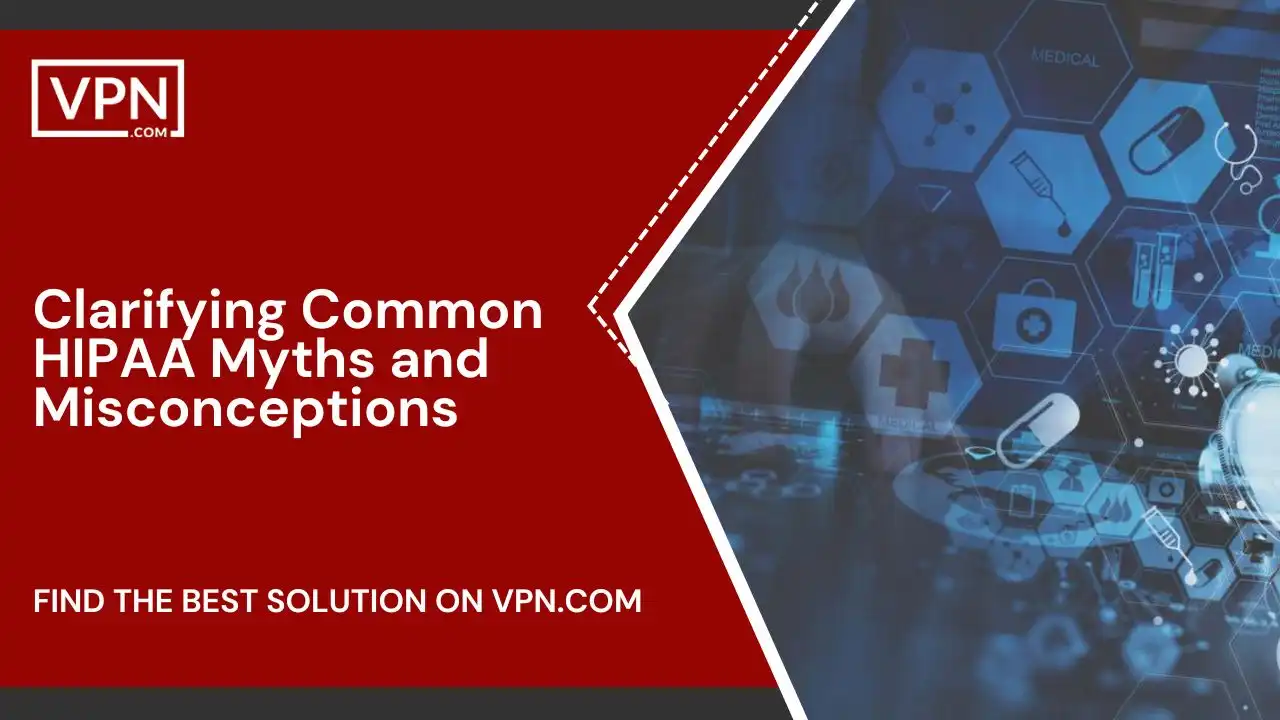
Frequent HIPAA myths worth clarifying include:
- Myth: HIPAA universally applies beyond covered entities and associates
- Reality: HIPAA primarily governs healthcare bodies and associates requiring access.
- Myth: HIPAA limits record sharing, obstructing coordinated treatment
- Reality: HIPAA permits sharing for coordination, like referrals, while limiting other disclosures.
- Myth: A business associate’s responsibility ends once handing records over
- Reality: Associate duty protecting PHI extends throughout engagements, even post-handoff.
- Myth: HIPAA guarantees healthcare privacy ubiquitously
- Reality: Regulations set a compliance floor beyond which more stringent state/institutional policies can rise.
Appropriate responsibilities become clearer by separating facts from prevalent myths, easing frustrations stemming from HIPAA misconceptions.
Emerging Role of Health Technology Under HIPAA
Well-designed electronic health records (EHRs) ensure the proper access controls, aligned with the HIPAA Privacy Rule, preventing unnecessary exposure to patient data. Role-based access and robust audit trails, as mandated by the HIPAA Privacy Rule, prove critical in tracking records usage.
Cloud services managing PHI under the HIPAA Privacy Rule must also guarantee security provisions through contractual BAAs and redundancy, avoiding disruption.
With healthcare modernization and the requirements of the HIPAA Privacy Rule, securing technology deployment remains pivotal without obstructing coordination for quality care. Cyber threats make vigilance mandatory, in line with the HIPAA Privacy Rule, despite resource constraints challenging smaller entities especially.
Industry Standards and Certification
While no federal certifications officially validate complete HIPAA compliance, independent auditing organizations offer assessments confirming that implemented controls align with recommended security guidelines. Top certifications providing credible conformity indicators include:
- HITRUST CSF Certification – Validates organization-wide processes safeguarding healthcare data, matching best practices through over 140 control objectives mapped to HIPAA, HITECH, and NIST standards encompassing organizational, administrative, physical, and technical controls.
- ISO 27001 – Assesses broader information security management structure with applicable standards reinforcing HIPAA controls adoption. It only covers the information security domain.
- AICPA SOC 2 – Attests security, availability, processing integrity, confidentiality, and privacy principles prioritized by service organizations handling sensitive data through auditor testing and reporting control suitability.
Highly regulated industries like healthcare providers increasingly seek external validations through completions of such certifications or type 2 auditing reports addressing accountability beyond internal attestations alone, reducing compliance risks, and externally documenting robust HIPAA care control adoption.
Guidance shaping recognized security best practices comes from NIST, ISO, and HITRUST publishing prescriptive frameworks addressing safeguards satisfying essential regulatory obligations across technical, administrative, and physical controls through technology-neutral internationally-approved specifications adaptable catering industry-specific risks continuously revised ever-evolving threat landscapes keeping updated regularly.
Looking at HIPAA’s Future Considering Global Health Implications
As global health partnerships expand across borders, varying data privacy statutes, including the HIPAA Privacy Rule, must be reconciled. The European Union boasts stricter top-down healthcare regulations on data protection and consent. Comparatively, the HIPAA Privacy Rule offers limited opt-out control.
With data usage promising public health advances while balancing individual privacy under the HIPAA Privacy Rule, ethically, this framework must evolve, safeguarding patients from exploitative models violating trust and consent. Technological interoperability globally also warrants reconciling multilayered policy hurdles currently fragmenting healthcare administration counterproductively.
Recommendations enhancing the effectiveness of the HIPAA Privacy Rule must address emerging challenges without overcorrecting policy currently facilitating smooth coordination driving quality care. With shared responsibility and nuanced collaboration, policies uplifting holistic well-being through protected data remain achievable.
FAQs
What is PHI, and why is it crucial under HIPAA?
PHI stands for protected health information, which includes identifiable patient data like medical histories, test results, insurance details, and demographics tying back to individuals – covering its privacy and security forms the crux of HIPAA regulations.
What are the penalties for HIPAA non-compliance?
Penalties for HIPAA violations span mandated federal audits, required corrective action plans, civil monetary fines from $100 per violation up to $50,000 for multiple willful neglect violations possible annually, and even criminal charges for offenses exposing data knowingly without safeguards.
How can healthcare organizations stay updated on changes to HIPAA regulations?
To stay current on evolving HIPAA rules, healthcare organizations should routinely check hhs.gov guidance, sign up for email update bulletins from the Office for Civil Rights, and confirm business associate agreements address revised expectations.
What role does patient advocacy play in HIPAA compliance?
Patient advocacy groups promote awareness around HIPAA rights. Hence, individuals take more ownership of health data, report perceived consent breaches, and pressure healthcare providers to proactively enhance privacy policies or address security vulnerabilities.

Get Started w/ NordVPN Today
- Top-rated VPN for OS unknown
- Ultra-fast speed in US in 2024
- Save 69% off with VPN.com Discount
- Plans starting at $2.99/month
- Rated 4.5/5 on Google Play with over 825,000 reviews
- Rated 4.7/5 on Apple App Store from 6,600 users
Conclusion
HIPAA regulations, including the HIPAA Privacy Rule, play a pivotal role in upholding healthcare privacy and security in a digital era full of vulnerabilities without obstructing the coordination necessary for effective treatment under the HIPAA Privacy Rule. Covered entities and associates carry ethical duties under the HIPAA Privacy Rule to prevent unauthorized PHI access and ensure staff handles records responsibly.
By clarifying misconceptions around the HIPAA Privacy Rule, while proactively addressing challenges, healthcare providers can maintain public trust through vigilance against threats that compromise sensitive data.
With appropriately secured technology and continual training, covered entities can target compliance gaps, preventing breaches under their stewardship as mandated by the HIPAA Privacy Rule. Future policy amendments will likely address emerging technologies and global health partnerships through updated guidance from HHS under the scope of the HIPAA Privacy Rule.
Ultimately, the HIPAA Privacy Rule seeks to safeguard patients’ best interests by only permitting essential health data disclosures for securely coordinating their medical care reimbursable by insurers.
This assurance of protected sensitive information helps improve quality treatment outcomes by facilitating transparent record sharing safely without unwarranted exposure, risking identity theft or psychological distress.
Customer Reviews for NordVPN: In-Depth Review, Tests, and Stats

Connection issues with MLB.TV
May, 2 2023

Prompt customer service
May, 6 2023

I would highly recommend
December, 15 2023



